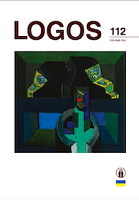Menonas: anamnezė kaip (at)pažinimas
Meno: Anamnesis as (Re)Cognition
Author(s): Skirmantas JankauskasSubject(s): Metaphysics, Epistemology, Ancient Philosphy, Ontology
Published by: Visuomeninė organizacija »LOGOS«
Keywords: Virtue; beingness; anamnesis; immortality of the soul; the divided line analogy;
Summary/Abstract: The paper interprets the second part of the Menon (80a-86c), where Plato introduces the concept of anamnesis for the first time in his dialogues. With this theory of knowledge Plato attempts to justify the possibility of knowing virtue as beingness (οὐσία). Since virtue in general is an entity hypothetically predicted from the standpoint of being, its cognition implies the additional problem of its identification. Therefore, the way of knowing such an entity should function as an identification, i.e. already presuppose a certain knowledge of such an entity. Plato finds such a way in ancient geometry, which uses supposedly sensually familiar drawings, and draws conclusions about entities that exist beyond of the sensible. The possibility of anamnesis is grounded in Menon by proving the Pythagorean theorem to an illiterate young slave. Since the concept of anamnesis is not elaborated in the dialogue, conclusions about the role of anamnesis and the role of the geometrical mode of reasoning in Plato's philosophy are drawn from other dialogues of Plato. It is concluded that in Meno and Phaedo Plato does not formulate anamnesis as a way of knowing, he exploits it as an argument to justify the immortality of the soul, i.e. to demarcate the subject of philosophising. The geometrical mode of reasoning, which Plato universalises and ontologises, plays a much more important role in Platonic philosophising. The paper shows that this mode of reasoning, together with the assumption of a logical connection between imagination and thought, determines the structure of the analogy of the divided line that illustrates Plato's ontognoseological conception.
Journal: LOGOS - A Journal of Religion, Philosophy, Comparative Cultural Studies and Art
- Issue Year: 2022
- Issue No: 112
- Page Range: 9-22
- Page Count: 14
- Language: Lithuanian

